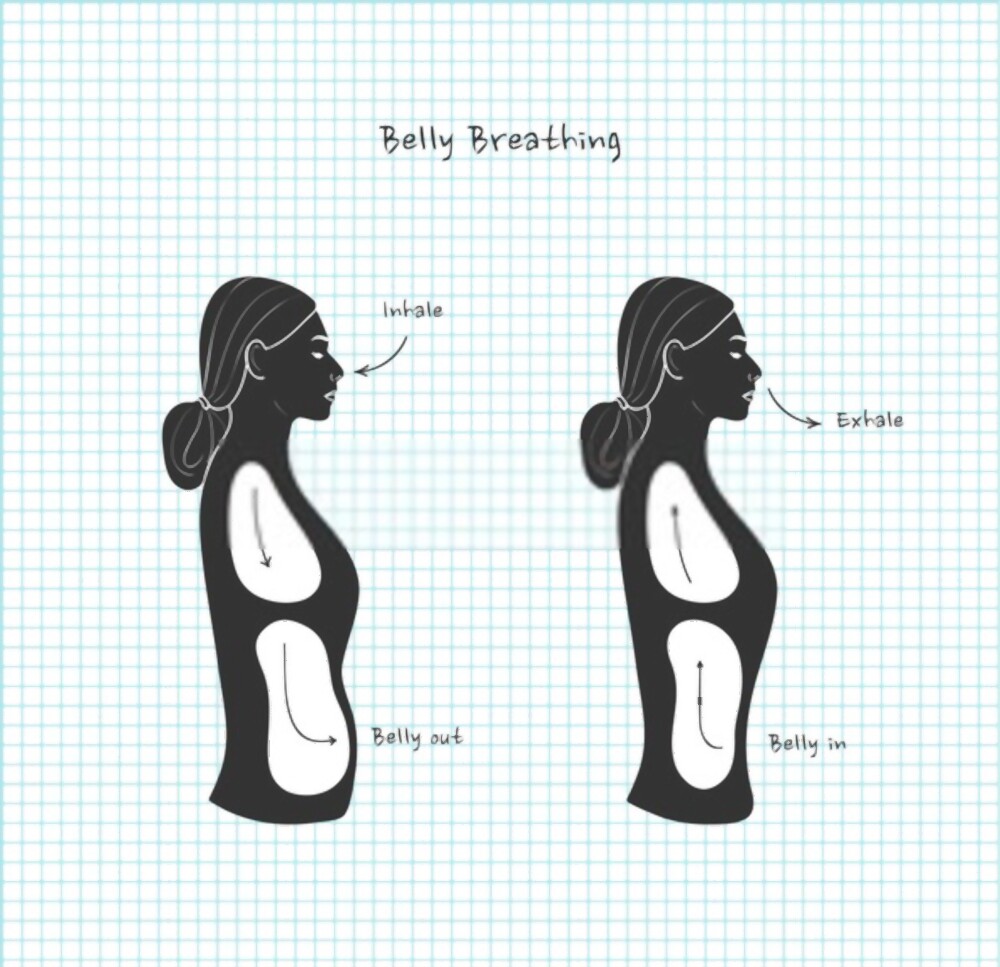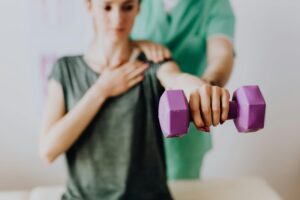Breathing exercises and rehab for post covid-
The purpose of breathing retraining and rehab in post COVID-19 patients is to improve quality of life. Symptoms like dyspnea and also anxiety show improvement with breathing retraining. Also, rehab reduces complications and preserves function.
Pulmonary Rehabilitation is thus an important aspect of medical rehabilitation.
A few examples of breathing exercises-
Diaphragmatic breathing
Diaphragmatic breathing involves the individual to predominantly engage the diaphragm muscle, while minimizing the action of accessory muscles. The diaphragm is the core muscle of respiration. Nasal inspiration should be encouraged to facilitate the diaphragm. Moreover, Active abdominal muscle contraction at the end of expiration helps to increase abdominal pressure.

Yoga and breathing
Yoga coordinates breathing with arm lifts or body positioning during the inspiratory or expiratory phase. Examples of yoga to be practiced include Pranayama, Tai Chi
Physical exercise
Physical exercise is a core component of rehabilitation. However, For beginners, basic bed mobility exercises can be started with. Pause in activity should occur if SpO2 drops below 90 and resumption when spo2 is back to normal.
Exercise to relieve dyspnea
Pursed lips breathing is performed by a nasal inspiration and then is followed by blowing against pursed lips. This helps to decrease airway collapse, reduce respiratory rate and dynamic hyperinflation during exercise training with the aim of an overall increase endurance.
Airway clearance
Active cycle of breathing techniques utilizes cycles of airway clearance techniques to ventilate obstructed lung segments. Another technique is Autogenic drainage that utilizes a combination of the maneuvers to mobilize and centralize secretions with short breaths to collect secretions in peripheral airway. This is then followed by normal breaths to collect secretions into the intermediate airway, and finally deep breaths and huff cough to expel secretions.
Posture
Posture plays an important role in respiratory function. Patients can be encouraged to engage in erect head and neck positioning at all times when possible.
Conclusion
Pulmonary rehabilitation helps provide improvement in exercise capacity. In patients with respiratory involvement, exertional desaturation is a key feature.Thus A lot of patients might show with reduced ventilatory capacity and tissue oxygenation. Moreover, Symptoms like dyspnea are frequently present. This therefore causes reduced exercise capacity and reduced endurance.
Rehab and breathing provide an essential role to improve aulity of life. They improve lung oxygenation and thus help in increasing exercise tolerance. An increased aerobic capacity is observed in many patients which ease the daily activities and keep one at ease.
Also read-https://vcurehealthcare.com/heres-your-food-guide-for-ramzan/





